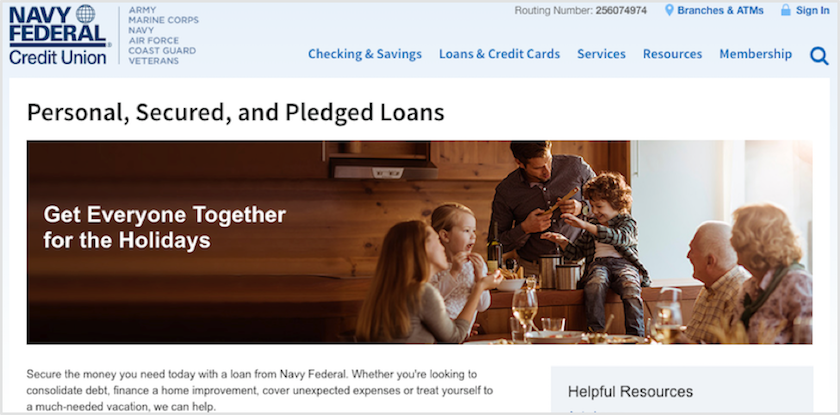Table of Content
Additionally, each lender has its own eligibility criteria when it comes to getting approved for a home equity loan and a mortgage on the second home, if needed. For example, some lenders might not be willing to approve you if you’re using a home equity loan to cover your down payment. After comparing multiple lenders and home equity loan offers, select the best one and formally apply. Each lender will have their own requirements, so consult with them to see the documentation you’ll need to provide in order to finalize the loan. A HELOC is a line of credit with a variable interest rate, which means the rate can move up or down. After borrowing against a HELOC, your monthly payment has the potential to increase unexpectedly if your interest rate shifts..
If you don’t have a current mortgage, you can still do a cash-out refinance—and it might even mean a lower interest rate than other financing options can provide. It turns your equity into a line of credit, which you can withdraw from as needed over an extended period. These can be good options if you’re not sure how much money you’ll need or if you have recurring expenses to cover. Most lenders allow you to access 80% to 85% of your home’s value—minus any mortgage balances you have. If you have no existing balance, you can borrow up to 85% of your home’s total value. On a home worth $400,000, for example, that’s equal to a lump-sum payment of up to $340,000 ($400,000 x 85%).
How To Use a Home Equity Loan To Buy Another Home
They’re generally higher than cash-out refinance rates, but lower than personal loans or credit cards. The downside, though, is that you’ll be required to make monthly payments. You’ll also have to cover closing costs and, if you can’t make your payments, could be at risk of losing your house.

If you own a home and are thinking of buying a second property, it’s important to be familiar with ways to fund the purchase, including with a home equity loan. You can use a home equity loan to access the equity in your current home to apply toward a down payment on your next home. This is a popular way to allow you to make a sizable down payment on a new home without needing to sell your current home concurrently. Instead of getting a credit line that you can use many times, home equity loans give you a one-time, lump-sum payment at closing. Generally speaking, the lower your LTV is, the less risky you are to lenders, and the easier it will be to get approved. Because of this, having your home paid off means that you don’t have an outstanding balance on a mortgage and that your LTV is likely zero.
What are my best options?
It’s expressed as a percentage, calculated by dividing your outstanding loan balance by the appraised value of your property. Because the loan is secured by collateral , you may also get a lower interest rate than you would on other financial products. Figure is a great option if you’re looking for an online lender that can get you your funds quickly.

There are both pros and cons to borrowing from your home equity, and there are a few ways to do it. Here’s a breakdown to help you decide if using your home equity to buy another house is a good idea for you. Although this is important to remember, it’s not necessarily a deal breaker, as it’s no worse than having two mortgages and another loan – which would likely have higher interest rates. Despite the benefits of using home equity to buy an investment property, there are also some potential risks. Please note that calculating the internal rate of return is key to making sure this happens. To understand how to use home equity toward your next property purchase, you must first understand how a home equity loan works.
Take Out a Personal Loan
But if you’re undecided or need more information, we’ve collected some information to help you decide if using home equity for another home purchase is right for you. When your old home sells, the proceeds will first pay off your remaining mortgage balance, then your home equity loan. Owning your home in full can make it easy to access cash when you need it without having to sell your house or pay sky-high interest rates like you would on a credit card. Finally, you’ll attend a closing appointment, where you’ll pay your closing costs and sign your loan paperwork. Your lender will require various financial documents to prove your income, assets, and debts. This usually includes W-2s, tax returns, 1099s, bank statements, and more.
When you do this, you extract enough cash to pay off your existing mortgage and get the cash you need to buy the new home. Today’s mortgage rates vary with market conditions, but the rate you’re offered also depends on the riskiness of your financial profile. A lender must assess whether they believe you’ll repay the home equity loan on time.
You have no obligation to use your total line of credit, and the funds can be used however you’d like. Yes, you can still take out a loan against your house—even when it’s fully paid off. Home equity loans, HELOCs, and cash-out refinancing can all be smart options. You do have some other options besides credit cards and personal loans if a home equity loan doesn't seem like the right fit for you. Justin Pritchard, CFP, is a fee-only advisor and an expert on personal finance.
Mortgage “points,” or loan discount points, are prepaid interest that reduce your rate on most loan types. Points cost more upfront, but may make sense long-term to save on interest. Most banks offer these loans and they come with variable interest rates and low closing costs.
You can typically find home equity loans for anywhere from five to 30 years, depending on your needs and financial situation. Collateral helps, but lenders have to be careful not to lend too much, or they can risk significant losses. It was extremely easy to get approved for first and second mortgages before 2007, but things changed after the housing crisis. You risk losing your home to foreclosure if you fail to make loan payments.
Alternatively, you can leave your existing mortgage in place and take out a second loan in the form of an equity loan or line of credit. Your credit score is a three-digit number that’s used to predict how likely it is you’ll pay back money you borrowed. If your equity is tied up in another property, a bridge loan helps you cover the gap in your financing as you transition between two homes.
Her passion lies in writing about personal finance and entrepreneurship. It’s considered mortgage fraud to falsely tell a lender that you intend to use a property as a second home when you’ll really be using it as an investment property. Home equity is the difference between your existing mortgage balance and the home’s value. The longer you own your home and pay your mortgage, the greater your equity. If you’re using a home equity loan to “buy, build, or substantially improve” your property, the interest you pay may be tax deductible. This can have a big impact on the affordability of your home equity loan, so be sure to talk to your tax professional up front.
A drop in housing market values could also make it hard to resell the investment property. The lower rates offered on home equity loans can help you save money on interest charges, especially if the mortgage rate for the investment property is higher. Unlike with a home equity line of credit that allows you to repeatedly draw on and pay off your credit line, you’ll receive your home equity loan funds as a lump sum. You’ll then pay this amount back in equal installments over your repayment term—usually five to 30 years, depending on the lender.
If you have a $300,000 mortgage and you want to borrow $150,000 to buy a second home, you could potentially refinance your original mortgage loan for the combined $450,000 to do so. If you choose to sell your house while still making payments toward your primary mortgage and home equity loan, you will be able to pay off these liens from the home sale’s proceeds. In 2018, changes to tax codes led to somewhat ambiguous guidelines for investment properties. Because of this, we recommend consulting with an accountant before making any decisions. However, if the home equity loan is not specifically being used to improve the property it was taken out against, it’s likely it will not be tax deductible. And if you default on the loan, you could potentially lose both your primary and secondary properties, as both are held as collateral.

Taking equity out of a home to buy another with a cash-out refinance can be more advantageous than other options because you’ll have a single mortgage instead of two. However, interest rates on cash-out refinances are typically higher than standard refinances, so the actual interest rate will determine if this is a good move. Instead of opening a second mortgage, you can refinance your home and cash out its equity with a cash-out refinance. Refinancing your home can help you get a lower interest rate and provide you a lump sum based on your equity.

No comments:
Post a Comment